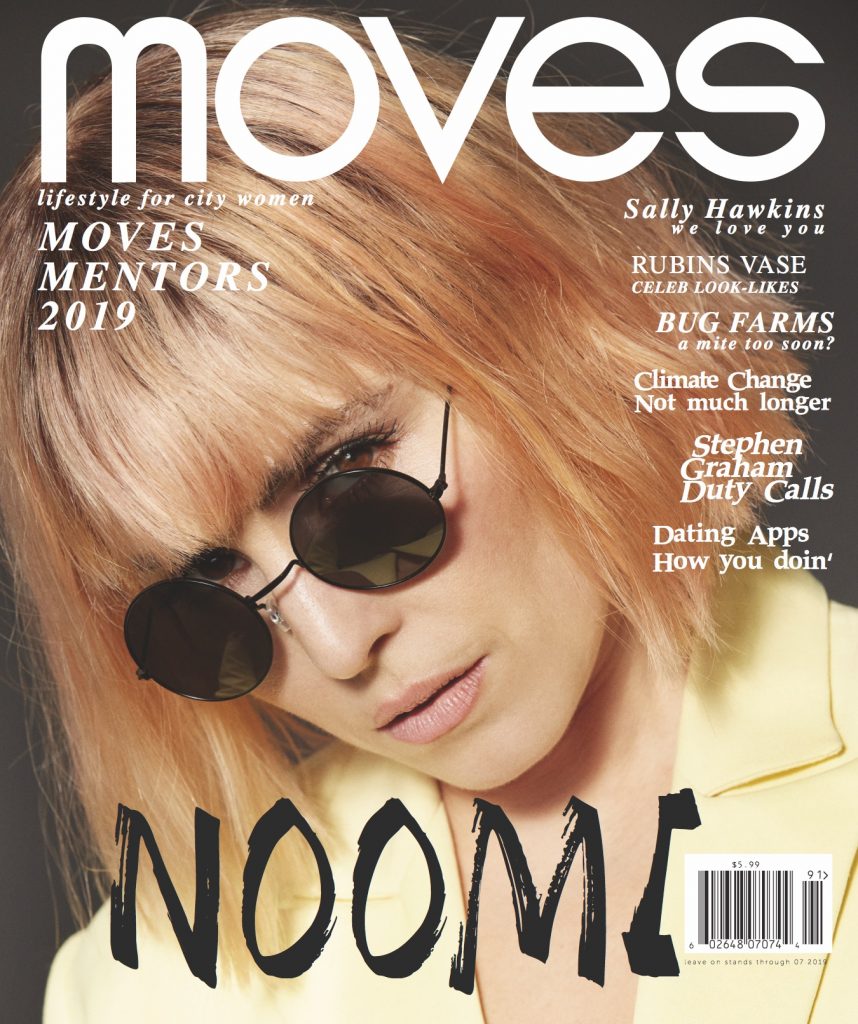

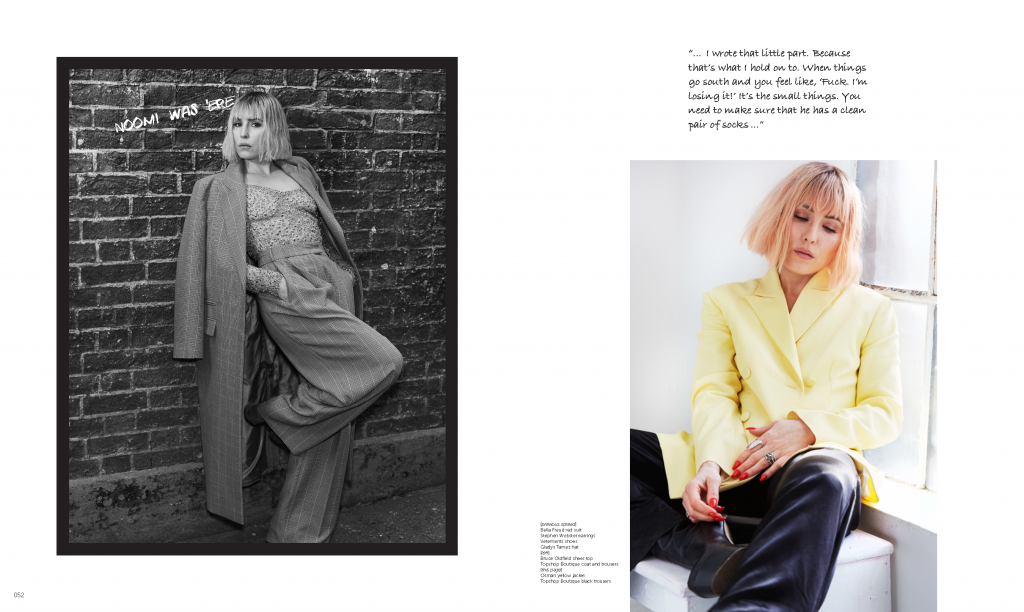


The Swedish-born actress’ career has spanned over three decades and three languages, and she carries every character she’s played with her. “There’s always a new Noomi coming out in the end of the project. So, it’s not going back to who I was before. It’s more about like finding who I am now.” Sometimes that’s harder than it seems. In the sci-fi thriller, What Happened to Monday, she played seven sisters at the same time. That’s more than just learning seven times the amount of lines, it’s more like splitting your soul seven ways—a feat that requires some magic, and a lot of planning. “I knew like, ‘Okay. This day I’m playing five sisters,’ and I had a plan for how like to kind of move in and out of them, I made playlists—like music to help me to enter characters and leave a character, and I had different fragrances so each character smelled a certain way.”
Putting that kind of load on one’s psychic RAM isn’t without its consequences. “When I came back, my short memory was gone for like 10 days. Like, I made a plan for the day and then an hour later I was like, ‘Oh, wait a minute. Is it Monday or is it Saturday? Or like … What am I doing today?’ Like, I had to call my sister once, I was driving in London and I just all of a sudden was like, ‘Oh my God. I don’t know where I’m going.’” Noomi hid out for days, spending quality time with her couch while she waited for her cache to clear a little. “I felt like an infant almost, like a newborn that needed to like start all over and like learn how to basically like function again.” It might seem like staying closer to the surface of a character would be a necessary part of self-preservation, but she won’t even consider it. “For me, that’s not a sacrifice. Like, I feel like it’s my duty as an actress to give that and to go as deep and as far as I possibly can. Because, everything else would be like a betrayal to the role or the roles I’m playing.”
She disappeared three times into the role of Lisbeth Salander in the Swedish-language film trilogy of the Millennium series, starting with The Girl with the Dragon Tattoo. She shot all three movies back-to-back and had to walk away from the character forever. “I gave a year and half of my life to Lisbeth Salander. When I was done, I was done. It was over in me. Like, I never want to go back to it. And, I have a lot of respect for Rooney Mara and Claire Foy, but I feel like I don’t have a lot of interest in watching others do it either. It was just finished in me and I feel like I almost went too far. It was very intense. It’s a chapter in my life where I gave everything and then, when I was done, I was done.”
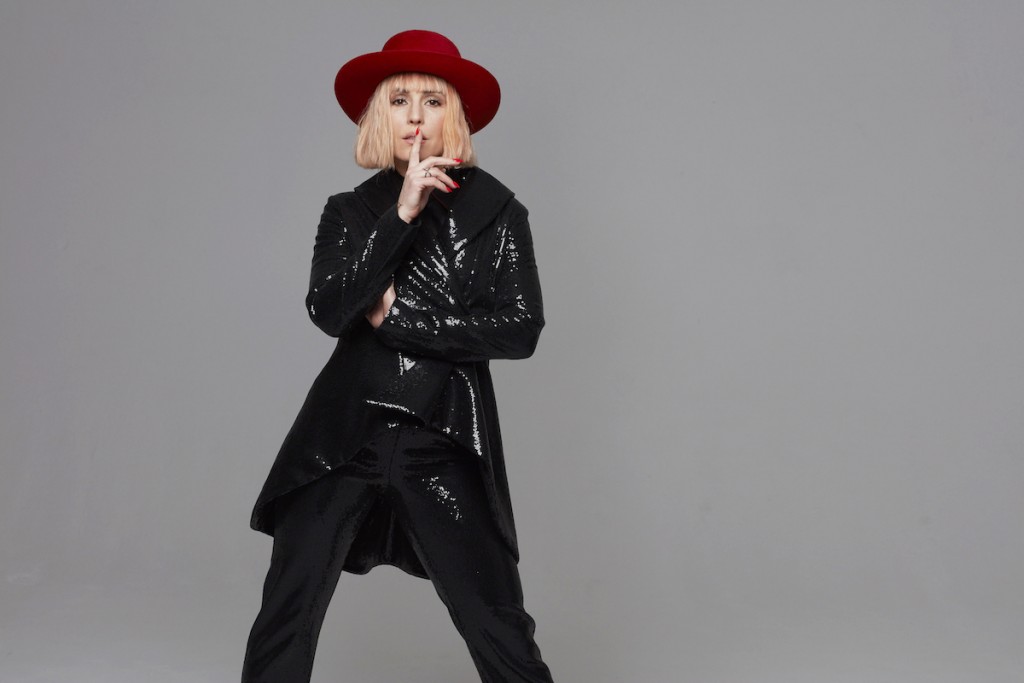
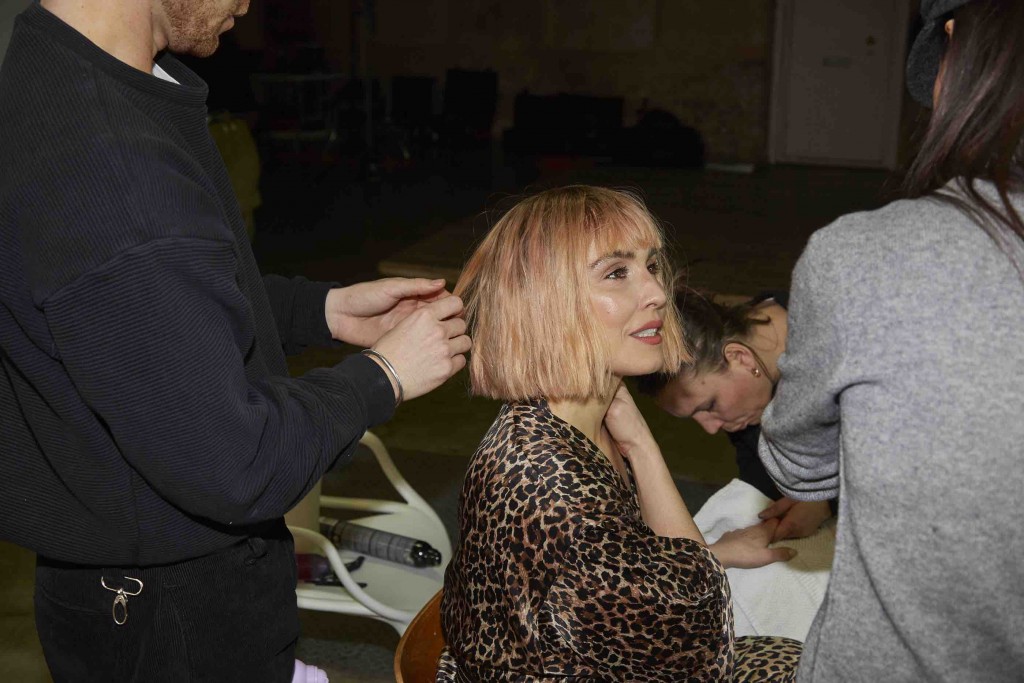
In Stockholm, the heist drama based on the true crime story of the 1973 bank hostage crisis in Sweden, Noomi returned to her geographic roots. “I grew up knowing about it. I was always very fascinated by it. But, I didn’t know the details of it. So, when I started digging into it, I just realized like, ‘Oh my God. This is kind of pretty extreme.’ It’s like strangely romantic. And, I started seeing from Bianca’s perspective pretty early on in the process.” In the film, Noomi’s hostage character is as still as Ethan Hawke’s bank robber is brash, and she finds the titular Stockholm Syndrome between the lines. “I always try to find those cracks in the characters. Because it’s a contradiction. Because as soon as the character’s just black and white and is like, ‘Oh yeah. She’s a good girl,’ you know, ‘She is taken hostage and she tried to survive. And, in the end, she kills the bad guy.’ I mean, that’s just boring. Because like in real life, people are not like that. There’s no such thing as good and bad in that simple way of seeing it.”
Noomi uses the small moments to let the character breathe, and in that way, live. There’s a tiny scene in Stockholm where her character’s husband comes in while she’s being held hostage. She calmly gives him a recipe for dinner for the kids. That beat stands out—and was her creation. “That whole thing, that was my idea. I wrote that little part. Because that’s what I hold on to. When things go south and you feel like, ‘Fuck. I’m losing it!’ It’s the small things. You need to make sure that he has a clean pair of socks. That he has like clean underwear for tomorrow. This is a survival kit, those kind of weird, rational, everyday-life details. And then he doesn’t do it.” It seems like it’s just fish, but it never is. “I think the fact that he doesn’t cook the fish is also one of the facts is why she is drawn to Ethan’s character—he sees her!” It’s as if being understood is its own power. “To be recognized is such a strong thing. Because, you want to be seen. You want to feel alive. And, even if that person is like holding you, keeping you away from like—basically controlling you, and you’re his hostage. If you feel seen and you feel like, ‘You know, he really needs me,’ I mean, he’s halfway into your soul.”
Playing a character based on Jacquie Davis, a real-life female bodyguard who has protected everyone from U.K. royalty to J.K. Rowling, Noomi found herself on the other side of power in Close. With a female director and a female lead, it’s a gritty action movie with zero perfect hair and zero running in heels. Director Vicky Jewson’s vision matched Noomi’s. “What made me say yes to working with her was that she said, ‘I don’t want to do a film about women fighting and a female bodyguard that is sexy. I don’t care. It’s not about looking a certain way. It’s not about selling it and being attractive. It’s about making it real.’” It’s a fight she’s had over and over. Kicking ass, makes a mess—despite how Hollywood tries to sell it. “I’m like, ‘Okay. Why should I wear makeup? Why should I be pretty if I’m trying to survive?’ Like, ‘I’ve been escaping,’ or like, ‘I’ve been struggling.’ She’s gone through Hell, and what’s the logic behind me having mascara, looking pretty?”
Disrupting the mascara myth of the female action star is just the beginning. The next step, is making more space for female stories—told correctly. “We need more female writers and directors, because then their stories will be told. There’s a lot of amazing male writers who can write female characters. I’m not saying that. But, I just feel like the lack of female voices in this film industry is a big hole, because there’s fewer female stories.” And less understanding of what it really means to be female. “Every woman and every girl knows we are human. We are not like an object. We are not like eye candy. And, just the fact that you know so many times you get put into this position where you’re supposed to something attractive. And, the male character can be the real one, the raw one, the one who looks like rough and like broken. I feel like it slowly is changing but it’s still like a lot of work to do.”
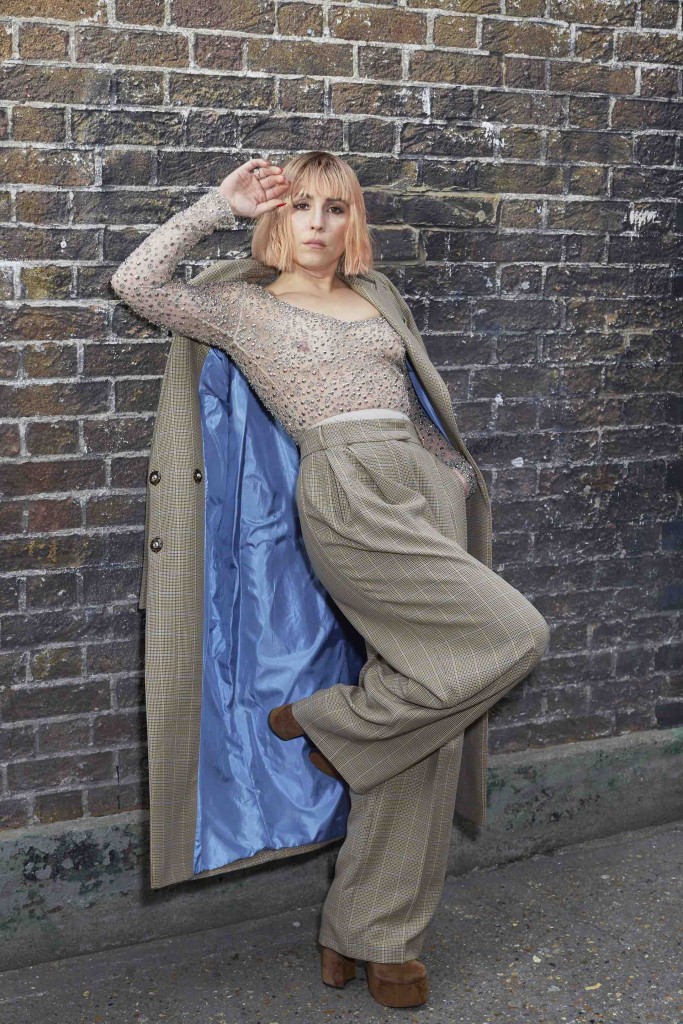
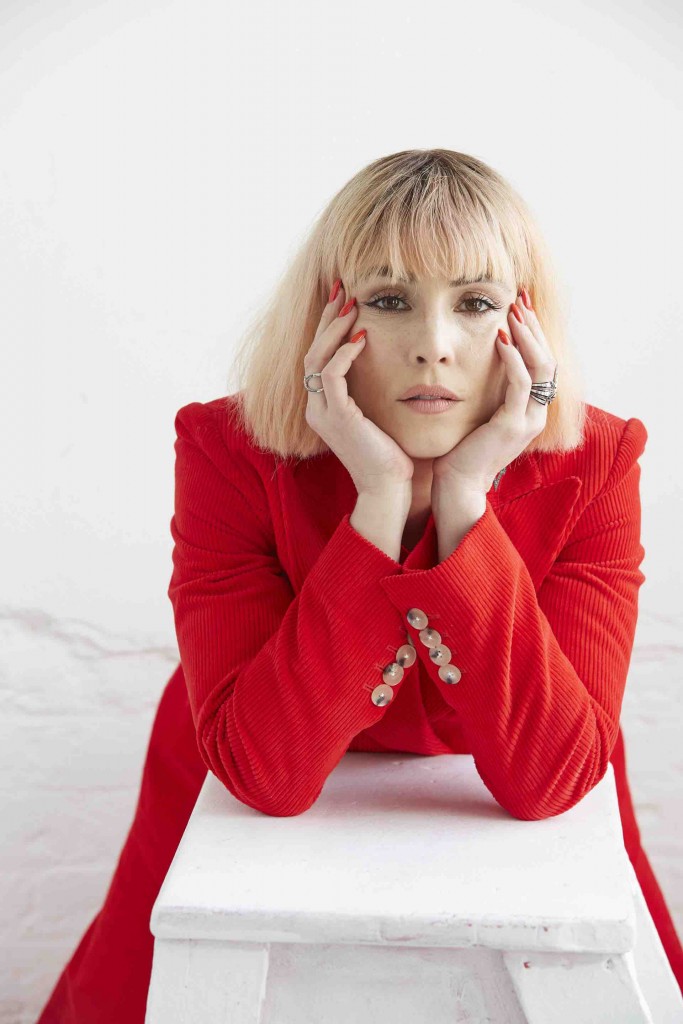
It’s change that almost needs to happen in the real world before it can be reflected back from the screen. “Just look at the political climate in a lot of countries—especially in the U.S. What are we saying to our daughters? What are we saying to our sons? If that’s like… what’s in charge? I feel like there’s a lot to do. But, it is changing. And, it makes me really happy and I’m very proud of being part of it. But, I think that every woman and every girl, we need to fight our own battles everyday of like being truthful to what we believe in and not try to satisfy people.”
A huge part of that desire to satisfy people is probably in your pocket racking up notifications right now. Noomi has bowed out of the social media sideshow for the most part, for her sanity and for her craft. “I feel like the whole social media culture is so much about being liked and being recognized and getting, like, proof that what you’re doing is right, that people approve it, and that what you’re doing is working. But like so many times it’s based on sex and seduction. I would like to have a small part in changing that.” Tweets and status updates also threaten more than a sense of self, they share too much about yourself. For someone whose goal is to lose herself in a character, social media makes it much harder. “I would like the audience to go in and watch a film and forget that it’s me, to fully fall into the story and see the film and forget that it’s an actress. I don’t want them to know what I had for breakfast. I don’t want them to know who I’m dating or what me and my son did this morning.”
Noomi Rapace doesn’t want you to know her, but she wants you to know this. “I live for acting. I love being an actress. It’s the most beautiful profession I can imagine. And, it will never be boring and I can never be good at it because I need to start from scratch every new project, every new character I start from zero. And the moment I become too famous or people know too much about me, I feel like I will—it will just stand in the way for people to see my work and they will see me.” She’s set to lose herself in more complicated characters in upcoming projects—and her loss is our gain.
